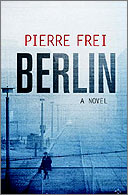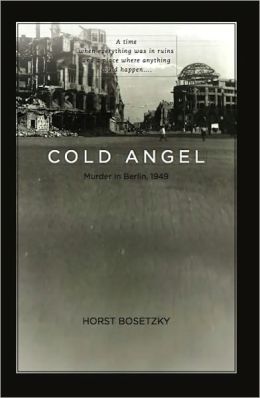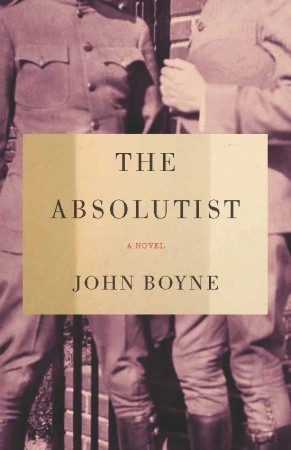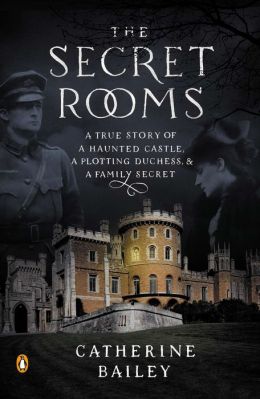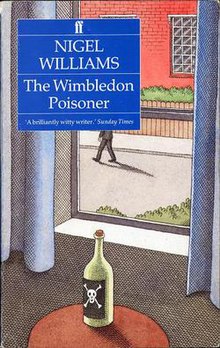 |
| Our regular guest blogger, Lady Jane Digby's Ghost |
I'm a fan of British writers. They tend to be snarkier and less politically correct than American authors. They're less afraid to shock or challenge their readers. Here are a couple of books I enjoyed reading this year. Unfaithfully Yours (Corsair, 2014), by Nigel Williams, is the story, told in epistolary form, of four couples who live in the tony London suburb of Putney. The couples used to be friends, but they've grown apart since their children left the nest, taking the couples' reasons for friendship with them.
 Over the years, the wife of one couple has died suspiciously, the husband of another couple has changed his sexuality, and the other two couples have fallen out of love and into hate with their partners. Actually, they all hate each other and are not afraid to express their thoughts and opinions on the subject. The loathing and contempt they all feel for each other is hilariously expressed in some of the most deadpan prose I've ever read.
Over the years, the wife of one couple has died suspiciously, the husband of another couple has changed his sexuality, and the other two couples have fallen out of love and into hate with their partners. Actually, they all hate each other and are not afraid to express their thoughts and opinions on the subject. The loathing and contempt they all feel for each other is hilariously expressed in some of the most deadpan prose I've ever read.The novel is told in the somewhat unreliable voice of a private detective brought in to investigate philandering of one of the husbands and is both laugh-out-loud funny and very un-PC. Unfaithfully Yours is available in the US in audiobook form, but if you're interested, you should probably order the book from England.
Jon Canter's A Short Gentleman (Vintage, 2009) is the story of Robert Purcell, who is indeed short in stature, but long on accomplishment. He had his whole life planned out as a teenager and has become a Queen's Counsel (what British lawyers call "taking silk") right on schedule. He returns home every night to his carefully-chosen wife and his carefully-conceived children. His life is perfect––until it isn't. Robert Purcell's life falls apart because he commits a crime. The reader doesn't learn what the crime is until late in the book, but living the life of a criminal is not in Robert Purcell's comfort zone. This is a funny look at a man who shouldn't be a criminal but who, improbably, is. A Short Gentleman is available in ebook form in the US.
 British comedian and author Ben Elton has written one of the most profound books of the year, Time and Time Again (Bantam, 2014). It is the story of Hugh Stanton, a brilliant History graduate from Trinity College, Cambridge. It is the year 2024, and Stanton is asked to return to Trinity by his former mentor, Dr Sally McCluskey. She tells him that Sir Isaac Newton made a sort of time machine four hundred years ago that could transport a person to 1914, the year Newton had prophesied would be a turning point in history. Of course, it was the beginning of The Great War and McCluskey tells Stanton that he must go back and prevent the assassination of Austria's Franz Ferdinand and then go to Berlin and shoot Kaiser Wilhelm. Those two events will prevent the beginning of The Great War and society will be the better for it.
British comedian and author Ben Elton has written one of the most profound books of the year, Time and Time Again (Bantam, 2014). It is the story of Hugh Stanton, a brilliant History graduate from Trinity College, Cambridge. It is the year 2024, and Stanton is asked to return to Trinity by his former mentor, Dr Sally McCluskey. She tells him that Sir Isaac Newton made a sort of time machine four hundred years ago that could transport a person to 1914, the year Newton had prophesied would be a turning point in history. Of course, it was the beginning of The Great War and McCluskey tells Stanton that he must go back and prevent the assassination of Austria's Franz Ferdinand and then go to Berlin and shoot Kaiser Wilhelm. Those two events will prevent the beginning of The Great War and society will be the better for it.Hugh Stanton carries out his tasks and The Great War never begins. But what does happen? Would you change history if you don't know what will happen because of what didn't happen? Ben Elton asks these questions and the reader is shocked at what does happen. Time and Time Again is not the best-written book I read all year, but it sure has me looking at history in a completely different way. I think the reader should have a good grasp of 19th- and 20th-century world history to really enjoy this book.
Let's now look at Irish writer Audrey Magee's debut novel, The Undertaking (Grove Press, 2014). Set in Berlin and Stalingrad during World War II, it is the story of German soldier Peter Faber and teacher Katharina Spinell, who marry for the most prosaic of reasons. He wants a honeymoon out of the war zone and she wants his death benefits if he dies. They marry in a telephone wedding, but fall in love and conceive a child when they meet.
Magee is unsparing in her descriptions of wartime Berlin, as the city is bombed into oblivion, and of the postwar period, when the Russian army occupies the city. The Russians are out for revenge for the German occupation horrors in their own territory. Meanwhile, Peter Faber is trapped in the frigid snow and vast wasteland of Stalingrad, as the German government leaves the 6th Army to surrender to the Russians. The Undertaking is not a mystery, but a stunning novel about the micro-effects of wartime both on the battlefield and on the home front. This is not an easy book to read, but is very good.
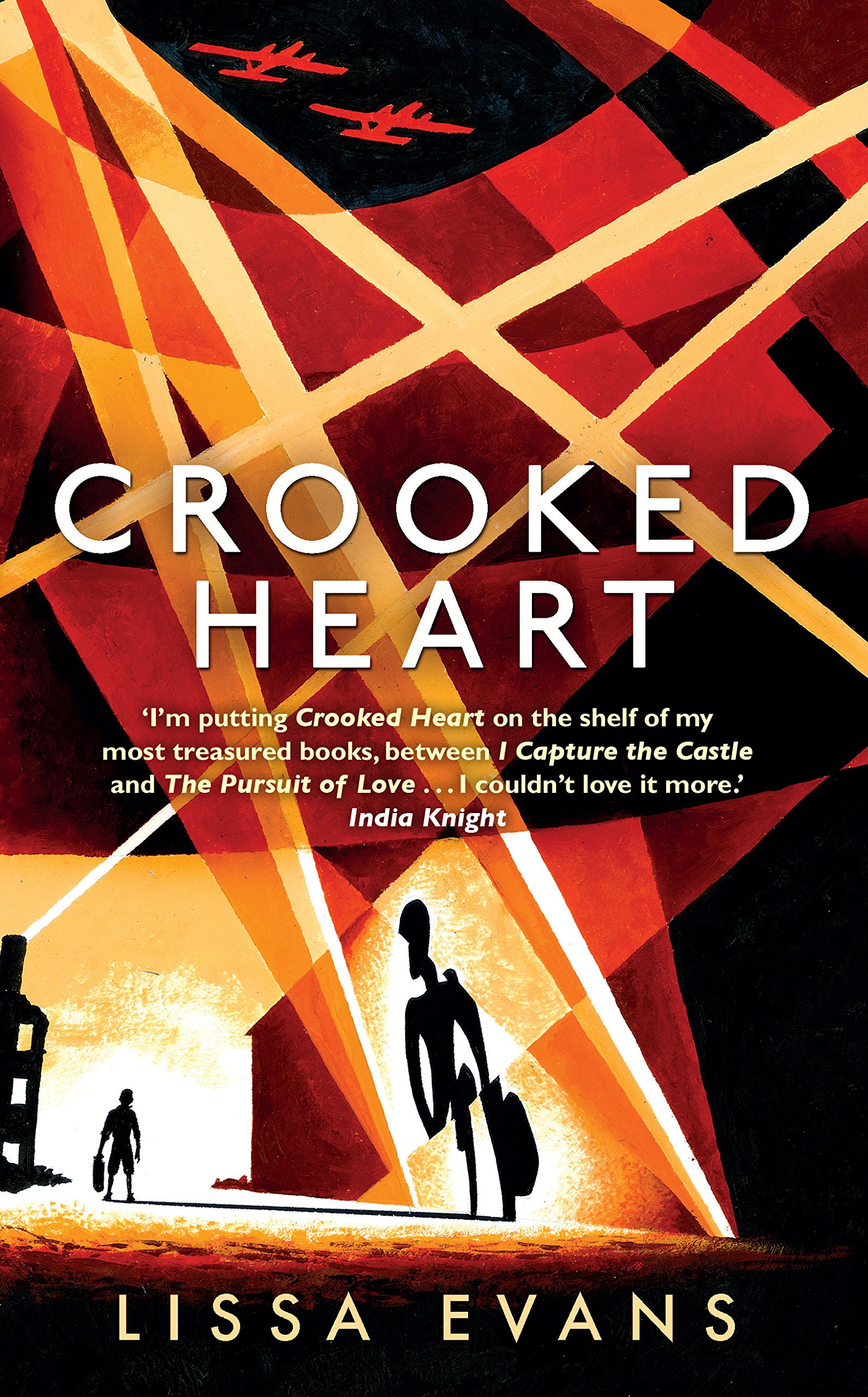 Looking at the WW2 home front––Britain this time––is British author Lissa Evans in her absolutely charming novel, Crooked Heart (to be published in the US by Harper, July 28, 2015). Noel Bostock is a 10-year-old orphan who has been raised by his aging great-aunt, suffragette Mattie. Mattie is suffering from dementia, but has given Noel a wonderful upbringing despite her increasingly wandering mind.
Looking at the WW2 home front––Britain this time––is British author Lissa Evans in her absolutely charming novel, Crooked Heart (to be published in the US by Harper, July 28, 2015). Noel Bostock is a 10-year-old orphan who has been raised by his aging great-aunt, suffragette Mattie. Mattie is suffering from dementia, but has given Noel a wonderful upbringing despite her increasingly wandering mind.Noel is a brilliant, precocious boy, given to silence and a seeming abhorrence of other children. Noel is not someone who suffers fools gladly, and he has met his match when he meets Vera ("Vee") Sedge, a local St. Albans woman into whose care he's literally dumped by the evacuation department. Vee has never met a money-making scheme she didn't like, even if it was morally questionable and somewhat illegal. Vee and Noel come up with some novel money-earning schemes.
In this book, Lissa Evans has created some of the most remarkable characters I've ever met. None are caricatures; all are people you might know and love yourself, just transposed to WW2 London. Not only are Evans's characters adeptly drawn, she also gives her readers a look at London in wartime. But the best part of Crooked Heart is the relationships Noel Bostock has with the people in his life, both past and current. A small part of the reader's heart will be left with the suffragette medal given new love in Noel's charitable hands. This is a wonderful, unforgettable read.
Do people retain their moral beliefs as they age? Do they see the outside world in the same way as that world changes and expands around them, while their own world shrinks and they lose their mental and physical faculties? Daniel Friedman, in his new book, Don't Ever Look Back (Minotaur Books, 2014), tries to answer those questions. This book is the second novel about long-retired Memphis policeman Baruch "Buck" Schatz. Friedman's first novel, Don't Ever Get Old, introduced 85-year-old Buck Schatz in a bit more rollicking plot.
In Don't Ever Get Old, Buck and his young grandson chase an old Nazi, hiding in the US, from Memphis to St Louis in an attempt to find some hidden gold. This second book, with a much more serious look at aging and how the now 88-year-old Buck, living in an assisted-living facility with his wife, has not learned to give up the ghosts of the past.
Buck Schatz has been contacted by a long-ago criminal, "Elijah," whom he remembers with no fondness after Elijah master-minded a bank heist in Memphis in 1965. Elijah would like to surrender to police in 2009 for his part in that long-ago heist. The book goes back and forth between 1965 and 2009, as Buck Schatz looks at his own moral beliefs about crime and punishment.
Don't Ever Look Back is a serious book that has some funny parts. I'd say Daniel Friedman's first book was just the opposite. Both make for good reading, but this second book might make you think about morality, aging, and what memories last as a person nears the end of his life.
 The Strangler's Waltz (Monsoon Books, 2013), by Richard Lord, is set in 1913 and features two Viennese policemen who are called in to investigate the murder of a wealthy woman found strangled in the red light district. Her murder is followed by four others and the city is in a panic. Will the strangler in Vienna surpass the numbers run up in London by Jack the Ripper 20 years earlier?
The Strangler's Waltz (Monsoon Books, 2013), by Richard Lord, is set in 1913 and features two Viennese policemen who are called in to investigate the murder of a wealthy woman found strangled in the red light district. Her murder is followed by four others and the city is in a panic. Will the strangler in Vienna surpass the numbers run up in London by Jack the Ripper 20 years earlier?Police inspectors Karl-Heinz Dorfner and Julian Stebbel are tasked with finding the strangler. They are helped in their job by Dr. Sigmund Freud, who was the psychiatrist to the first victim, and a young artist called . . . Adolf Hitler, who witnessed the first murder and draws a picture of the strangler, which helps the police identify the murderer. Okay, here's the possible problem with the book. The "ick" factor is fairly strong in a work of fiction featuring Adolf Hitler as a character anything short of mass murderer. But is it really a problem or is it a sign of daring on the part of the author? I can't quite decide, but I'm leaning towards "interesting plot point."
Richard Lord also does an excellent job of establishing place and time; the city of Vienna in 1913. The final years of both Emperor Franz Joseph's reign and the Austro-Hungarian Empire––neither survived the Great War––were a time of inquietude in the city of music and arts. The mystery of the five murders––and the attendant political ramifications of the deaths––is beautifully drawn by the author. I certainly hope that he does produce his promised three more books. This is an excellent beginning of the quartet.
Finally, I'd like to tell you about the reissuance of a series of five books by American author Richard Rosen. The books were originally published in the late 1980s and early 1990s. They feature Harvey Blissberg, a retired professional baseball player who starts a second life as a private detective. The books have been out of print for a while, but have been reissued in ebook form.
I started my re-reading of the Harvey Blissberg series with World of Hurt (Walker & Co., 1994; ebook reissue from MysteriousPress.com/Open Road, 2013), the fourth book in the series. I had read all of them when they were first issued, and I'm pleased to see they've been reissued. I think Rosen's writing has held up as time has passed.
Another mystery writer whose work reminds me of Richard Rosen's is Lawrence Block. Block is a more prolific writer than Rosen, but one of Block's characters, Matthew Scudder, seems a lot like Harvey Blissberg. Both are cerebral detectives, and the books' plots are often overshadowed by the characters. Block and Rosen both use dialog to move their plots, which I don't think is easily done. Both writers do it well, though.
It's also amusing to see a world without cellphones or personal computers. Written in the early 1990s, car phones (remember those?) are in use and the police have computers to access information but, otherwise, modern-day communications are not used. (It's a bit like reading a Sue Grafton mystery and realizing in 2014 that her books take place in the 1980s!)
So those are a few of the books that kept me entertained in 2014. I'm looking forward to continued good reading in 2015!






